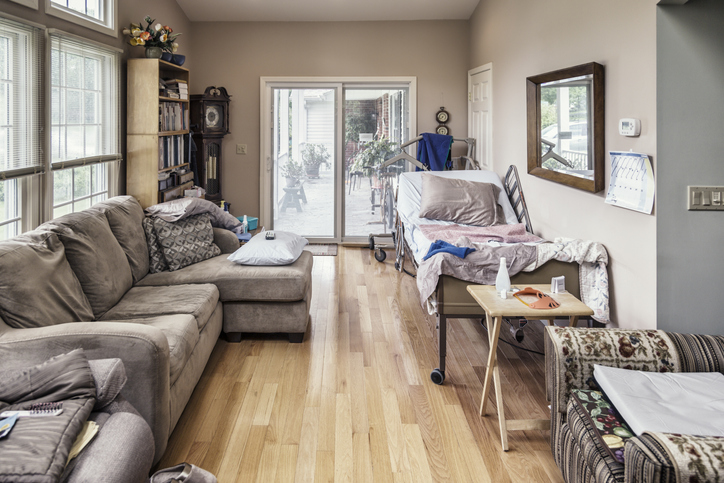
This week, five federal policy makers introduced legislation that would extend CMS’ waiver for hospital-at-home reimbursement by five years.
Three representatives — Vern Buchanan (R-Florida), Lloyd Smucker (R-Pennsylvania) and Dwight Evans (D-Pennsylvania) — put forth a bill on Thursday, and a pair of senators — Tim Scott (R-South Carolina) and Raphael Warnock (D-Georgia) — introduced companion legislation in their chamber.
CMS’s hospital-at-home waiver, which was established in 2020, allows eligible hospitals to treat certain patients in their homes with the same level of acute care they would receive in a traditional hospital setting. This waiver provides flexibility for Medicare reimbursement and requires participating hospitals to meet safety and quality standards, including 24/7 remote monitoring and in-person visits.
Presently, the waiver is set to expire at the end of September. The newly introduced bills seek to extend the waiver program through 2030.
This legislation would ensure that more than 200 hospitals across 34 states can continue providing hospital-at-home care.
Research from the American Medical Association shows that hospital-at-home programs reduce both patient mortality and healthcare spending. This care model decreases mortality by minimizing patients’ exposure to hospital-acquired infections, as well as enabling more personalized and comfortable care in a familiar environment. It lowers spending by eliminating the need for costly inpatient resources and reducing post-discharge complications, which can then lead to fewer readmissions.
AMA research also shows that 35% of hospice services, as well as 15-20% of emergency and urgent care services, can be delivered at home. With appropriate reimbursement, the group believes hospital-at-home programs could provide up to a quarter of the nation’s post-acute and long-term care.
“America’s hospitals and health systems see hospital-at-home programs as a safe and innovative way to care for patients in the comfort of their homes. This legislation will provide additional time to continue gathering data and will also provide much needed stability for new and existing programs,” Lisa Kidder Hrobsky, the AMA’s senior vice president for advocacy and political affairs, said in a statement.
CMS has also released research demonstrating that treating patients in familiar settings speeds up recovery times, as well as lowers the risk of adverse events and death.
This week’s legislation would require CMS and HHS to conduct more research comparing hospital-at-home care to inpatient care across several criteria, such as rates of infection, readmission levels, patient satisfaction and care quality.
The bills have received support from several groups representing providers and patients, including the AMA, American Hospital Association and Moving Health Home.
“CMS itself found hospital-at-home saved an average of almost $2,000 per patient when compared to inpatient care. It’s time to finally give it long term access to this life-saving model of care,” Krista Drobac, founder of Moving Health Home, said in a statement.
Photo: Willowpix, Getty Images




